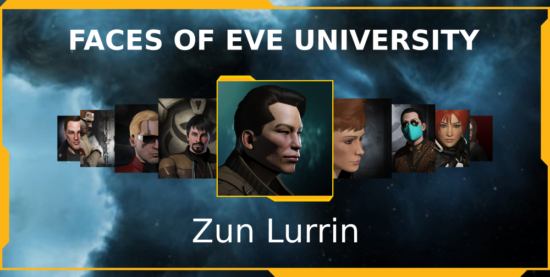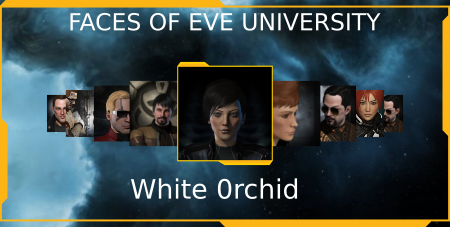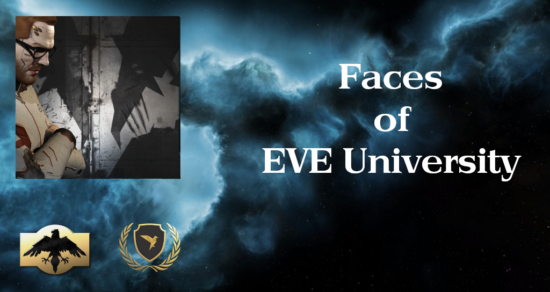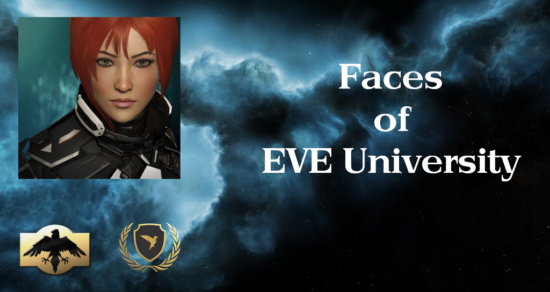A guide on how to traverse different areas of space written by Lucas Spellmeyer
There are many fundamental skills a new pilot must master to be successful in New Eden but not all skills can be simply queued up and learned over time, some are not as clearly defined. One of the most compelling facets of EVE is the hostile environment of New Eden and honing your ability to overcome it. To not only survive but to thrive. Traversing space is dangerous no matter what, the danger simply varies depending on where exactly you decide to venture. One of the most common ways a new player loses their first ship is entering an area they are unfamiliar with. Finding that first awe-inspiring wormhole entrance, taking that shortcut through Low-Sec to Jita or rushing to that staging system a few jumps over. The ambitious player is likely to have the pleasure of learning a direct and severe lesson at the hands of more seasoned pilots. Lessons learned in blood are deeply impactful and arguably necessary, after all, immortals have little to worry when it comes to failure. Despite that, Adequate knowledge of the various areas of space and how to properly traverse them can save you time, credits and headaches.
Few of the ideas or instructions I am going to put forth in this guide are new or groundbreaking. Rather, consider this a high-level overview, an index of compiled knowledge and reference guide. To start with, we will discuss some universal tips then take a closer look at each area of space from the safest to the most dangerous, starting with High-Sec then Low-Sec and Null-Sec and finally wormhole space.
Disclaimer: there are many ways to move through the cluster. This is a collection of the safest ways to do so as a newer player. With this in mind, all of the proposed ships and modules have relatively short training times. To keep it from becoming unwieldy the scope of this article will focus strictly on the traversal of space for the purpose of either travel or hauling. If you are looking to engage in combat or willing to risk alternate methods, your results will vary. I simply wish to provide you with the knowledge of how to move from point A to point B with confidence and competence.
Universal
Knowing how to gather and analyse information before and during travel is key to your survival. The first tool you must learn to leverage is the in-game map. The most relevant section being the Geography and Statistics tab. This shows things to be aware of such as a system’s security level and the location of the new Metaliminal storms. More importantly, it shows up to date information for each system regarding ships and pods recently destroyed, jumps taken and pilots in space or docked. This information is invaluable for planning your route. If you think you can sneak through Rancer and the map shows 20 ships and pods destroyed in the last hour, perhaps you should reconsider. DOTLAN is an additional tool for all things map-related in New Eden and you should become very well acquainted with it. DOTLAN has been a constant in the traveller’s arsenal for many years and for good reason.
Another useful third party tool is Zkillboard. Searching for a particular star system’s killboard allows you to acquire some information about who frequents the system and what they are using to catch their prey. For example, here is the killboard for the aforementioned Rancer. Investigating a pilot’s killboard losses can give you a heads up on their levels of competence and aggression as well as what they fly and how they might be fit.
Using the handy Gate Camp Checker is highly advised. In the inevitable situation that you do jump into a gate camp, there are many options for escape. If you can insta-warp or have a cloak you may be able to escape targeted scramble attempts, if there are bubbles this may not be possible. Cloaking and slow boating out of the bubble may work if you are lucky or “crashing” the gate may be a better idea. Meaning to decloak and immediately burn towards the entrance gate at full speed to jump back through before the attackers can pop you. If you return fire you will not be able to jump back immediately. By this stage, you are at a steep disadvantage. Learn more about dealing with gate camps here. These situations are dire and often will result in a loss but with good knowledge of engagement timers and your ship’s tanking ability compared to the enemies DPS capability, you can increase your chance for survival.
You should become very familiar with the D-SCAN tool. Any pilot who ignores the benefits of it does so at their own peril. There are entire classes dedicated to the D-SCAN tool, but until you attend one of those, you can visit this link for more information. Safe spots are also useful for when you are on the move, making regular use of them can help to keep you out of the grasp of your enemy. Lastly, drag your local channel out of your main chatbox and set it up separately from your other channels, this will allow you to always see who is in the system at a glance.
High-Sec
High-Sec, the safest area of New Eden and the place all of us start our adventure. Despite this, most pilots are already aware “safe” is giving High-Sec far too much credit. CONCORD will punish anyone who engages you illegally but there are some caveats to be aware of. While CONCORD will dispatch your attackers with flawless precision they are unlikely to save your ship. And vengeance can only provide so much solace. If your alliance is at war with another, many of the rules and laws CONCORD enforce are absent during the faction-sanctioned conflict. You can read about how to best conduct yourself during wartime here. Also, note that faction warfare combatants can freely engage each other in High-Sec at all times.
The most danger is present while hauling your goods to the major trade centres. You are unlikely to be ganked flying any regular PVE or exploration ship as long as you are not spotted carrying something extremely valuable without an adequate tank to protect it. The routes to these hubs are heavily trafficked and hence draw the attention of opportunists. The most dangerous systems along these routes are the ones possessing a security status of 0.5 which means it takes the longest time for CONCORD forces to react relative to other High-Sec systems. The most notorious of these systems being Uedama on the way to Jita. High-Sec pirates will station themselves in these systems and await juicy targets. They keep tabs on what is moving through the pipeline using a wide network of picketing spies who use scanning modules to view what is in a ship’s cargo before it reaches the kill zone. At which time they pounce with high damage disposable ships, CONCORD exacts swift vengeance and a third party entity scoops up your hard-earned loot as you awaken in a new clone.
Success in EVE does not come with having the biggest and baddest ship but instead having the right tool for the job. The different tools you have at your disposal come in the form of various ship types. You will begin to see that for every dangerous encounter, there is a ship that can drastically mitigate the risks. In the case mentioned above, it is the transport ship class. Using either the blockade runner or deep space transport (DST) is the best way a new player can protect their cargo. Both are purpose-built for moving expensive goods through dangerous space. The blockade runner class consists of the Viator, Prorator, Crane and Prowler. These ships boast an advanced cloaking system and increased warp acceleration which allows it to quickly and quietly reach its destination. The blockade runner also has a unique property which makes it immune to all cargo scanners. Keeping your exact cargo a secret (but perhaps tempting the reckless). The DST class consists of the Occator, Impel, Bustard and Mastodon. These possess a sturdy defence system which allows even a novice pilot to gain an effective tank of near 100k effective hit points (EHP) as well as an increased warp core strength. If you wish to know more about these useful ships, see the university’s wiki guides for the blockade runner and hauling. Learning the ropes while using smaller and less expensive vessels is key to knowing how to properly move your capital ships (such as freighters) later on.
For hauling smaller loads either an insta-warp fleet interceptor (which we will discuss in detail in the next section) or a Sunesis are a good choice. The Sunesis can haul the largest amount of cargo for any insta-warp capable vessel (around 1000m3). Perfect for hauling faction modules, blueprint originals and other low mass cargo. The most dangerous moments for these smaller ships are during the docking and undocking stage. I would advise setting up insta-dock and insta-undock bookmarks during a safe period at the various trade hubs around New Eden. This will help you to avoid gankers as you enter and leave these densely populated hubs with your valuables. If possible, avoid hauling during times of high activity such as weekends – again, making use of all the information at your disposal both in-game and out, is critical.
A final hazard worth mentioning before we move onto Low-Sec is the Triglavian and EDENCOM forces that still occupy systems even after the creation of the new Pochven region. Depending on the player’s standings with these factions their roaming fleets and powerful stationary defence platforms will devastate the unprepared. It should be noted that the Triglavian forces will attack even neutral pilots but EDENCOM will only engage those with negative standings towards them.
Low-Sec & Null-Sec
The zones where CONCORD response fleet will not assist you are Low-Sec & Null-Sec. While anti-piracy platforms installed on stargates and NPC stations (gate guns) protect you to a small degree in Low-Sec, the Null-Sec area of EVE is considered law-less. Moving through Low-Sec safely relies on being fast and or hidden. Gate camps are the primary threat, smart bombs are secondary.
In Null-Sec, whether player owned (Sov-Null) or NPC territory, the threats remain the same but are complicated by the removal of gate guns and the introduction of interdiction bubbles. Before entering the Null-Sec regions you should be confident in your abilities and tactics for navigating hostile space.
The primary ship for safely traversing both Low-Sec and Null-Sec is the Interceptor or “travel-ceptor”. There are two types of Interceptor, one being the Fleet Interceptor and the other being the Combat Interceptor. For our purposes only the Fleet interceptor is relevant. The Ares, Malediction, Crow and Stiletto make up this subclass. They all wield the powerful ability to nullify non targeted interdiction, which means they cannot be hindered to warp by bubbles of any kind (interdictor’s bubbles or stationary bubbles). You can read all about interdiction here. Combined with its small hull size and high warp speed, this ship’s travel survivability is second to none. While this ship is fantastic for travelling in all areas of New Eden, I would argue that before planning to move permanently into Null-Sec you have this ship at your disposal. When flown and fit properly these ships are nearly impossible to catch.
Flying and fitting your interceptor properly requires the right knowledge. Once you hop into your new ship you need to fit it for travel. The most important factor is to make use of the ship’s low slots to bring your align time under 2.00 seconds, making it insta-warp. This is possible due to how the EVE server accepts command input, something well worth knowing how to take advantage of. For further information regarding fitting also check out this link. Whether moving out to join your new alliance in their home constellation or travelling to the staging system for the upcoming war, the fleet interceptor is an invaluable tool in Null-Sec .
Having fit your ship and jumped into hostile space, you can now focus on how best to pilot it. Travelling in a properly fit interceptor makes you uncatchable but not unkillable. The best way to avoid disaster is warping to what is called a “ping spot” before warping from one gate to another. A ping spot or perch is a bookmark at least 150km off of a strategic location (such as a gate) which allows you to investigate a potentially hostile grid before warping to it directly. As you are unlikely to have bookmarks for the thousands of gates around the cluster, an alternative is to warp to a nearby celestial. The usual choice is a planet, but any celestial within D-SCAN range will do. Once you arrive you will want to use your D-SCAN to see if there are any ships on the gate and then proceed accordingly.
As you are immune to bubbles and cannot be locked before warping, most of the time these ping spots are not necessary, except for in the case of smart bombers. While they are relatively rare you must know how to avoid smart bombing ships. Generally more common in Low-Sec than Null-Sec these ships sit on gates and activate their smart bombs which do AOE damage and instantly destroy more fragile ships as they land without any need for targeting or scrambling. This mitigates your entire advantage and you are likely to lose your pod as well. The smart bombers will position themselves so that their short-range AOE damage will hit those who warp directly from one gate to another. Coming from your ping spot or a nearby celestial means you are not in this kill zone and should avoid any damage.
On the occasions that you are flying a ship that is susceptible to bubbles, this tactic will also avoid enemies’ stop and drag bubbles. Refer to interdiction 101 again for more information on the different types of bubbles. Unless there are no other pilots in local it is wise to always use a pre-made ping spot or nearby celestial before warping directly down to the next gate on your route. Some gates are isolated in deep space and are impossible to scout without a pre-made bookmark.
For Low-Sec, the blockade runner is best because many gate camps have logistics support which can withstand the gate guns and burn through any tank you might have. To put it simply, you are likely to face a fleet you cannot tank regardless of skills, ship type or modules, meaning your best option is to avoid conflict altogether. Another common tactic is the cloak trick, which allows more basic T1 vessels to have a better chance at surviving targeted scramble attempts.
In regards to Null-Sec , you are easily bubbled making any hauling in Null-Sec extremely dangerous. If you choose to use a non-interdiction nullified ship with a cloak, bubbles are your main threat. Many stationary bubbles have containers jettisoned to decloak ships as they land and become snared, make sure you brush up on the mechanics of cloaking before you head out. Ultimately it may be best to use either your alliance or a third party freighting service to ensure your goods make it to their destination.
Wormholes
Finally, we come to wormholes. Removed from New Eden and under no recognised sovereignty, this is the farthest you can stray from humble beginnings. Much of the information at your disposal has now been stripped away. With local chat not showing who is in the system, you can no longer tell at a glance if you are alone or not, with no map of the far-flung region you cannot plan your route and without gates, you must find your own way through the ever-changing maze of Anoikis (wormhole space). While wormholes may be most commonly delved into for loot and riches they can also be used as a useful shortcut to remote regions of the local cluster, helping you arrive quickly and without having to traverse dangerous choke points.
The final ship class we will discuss is the bread and butter of wormhole space, the Covert-Ops frigate. Another T2 frigate, which makes it an easy cross-train from the interceptor of your choice. This ship has advanced cloaking and scanning platforms. While its sister class the Stealth Bomber is designed for combat, the Covert-Ops frigate is designed for exploration. This ship class includes the Helios, Magnate, Buzzard and Cheetah. The key factor for the success of these ships is that they can stay cloaked almost all of the time, which when combined with the absence of local chat means you can remain completely undetected when you need to. How you decide to fit this ship relies largely on what you wish to do with it, pilots with at least some experience should know how to best exploit its systems. See this link if you would like something to reference before fitting up. These ships are susceptible to bubbles but due to the unpredictable nature of wormhole space, these tactics are less common than in Null-Sec . Enemy camps are most likely when jumping from High-Sec directly into wormhole space – hunting what the locals call “day-trippers”.
Before jumping into the newly discovered wormhole, bookmark the entrance. Once inside the wormhole, you want to now also bookmark the other side (the exit) so that you can make a quick retreat if necessary. Warp off to a nearby celestial, cloak up and begin moving in a random direction to avoid any possibility of being decloaked by those who may have seen you enter. You can use the fantastic Anoik.is website to gather some valuable information such as the wormholes’ class and type as well as recent activity.
While you continue to slow-boat along, align to another celestial and decloak, launch your scanning probes, warp and then recloak. When you land once again begin a slow burn off into space. Always bring 16 probes so that once you recloak you automatically reload your probe launcher. Once you have another wormhole scanned down, it is advised to warp to a nearby celestial from which you can scout it or warp in at a distance (50-100km) to check it is clear before jumping. If you are caught on a wormhole you may jump back through (at a larger range than gates, 5km) but be warned that unlike gates this is not possible to do in rapid succession due to polarisation.
Repeat this process as you scan down and move from wormhole to wormhole. You will want to bookmark the “chain” as you go, this refers to bookmarking both entrances and exits as you make your way through each new system. This allows you to easily retrace your steps when you are ready to head home. You must be aware that certain wormholes may close along the chain and you will have to find an alternate route home, check as you go to see which wormholes are end of life (EOL) and will expire soon. This is not a major concern as you can always safely log off and continue on another day. The deep complexities of wormhole space are far outside of our limited scope but you now know what you need to for basic navigation.
Hauling out of wormhole space is made quite simple by High-Sec connections that will pop you out into relative safety. This is only relevant for if you can survive living within wormhole space and if that is the case, you will be perfectly capable by then. Regardless, using what we have discussed in this article you have all the necessary tools to get your blue loot safely out to High-Sec .
Conclusion
You might think that moving from point A to point B would be simple but in EVE even the most pedestrian of tasks requires careful consideration. EVE is a complex and ever-changing game and it is difficult to truly cover anything in its entirety. There is no way to ever truly be safe in EVE, your best chance is to simply mitigate the risks. I am sure there are things that I have missed and that there will be some who disagree with the advice I have put forth. Despite that, I do hope that you have found this useful and that you can refer to this guide in the future as you continue to perfect your abilities. I believe this particular set of skills to be fundamental to your success and enjoyment within New Eden. If this information saves you a couple of ships and helps to make you a better pilot, then it will be worthwhile. Throughout your career, you are going to experience both death and glory (mostly death). I am not trying to make you a risk-averse carebear, I simply wish to help prevent you from whelping your ships while you are on your way to whelp ships.
If you have a continued thirst for knowledge, please consider attending one of the many public lessons held by EVE University. This guide would not have been possible without all of the reference material compiled by many hard-working pilots of EVE University. If you are interested in joining the university, please make use of this final link. Thanks for reading and fly safe!




